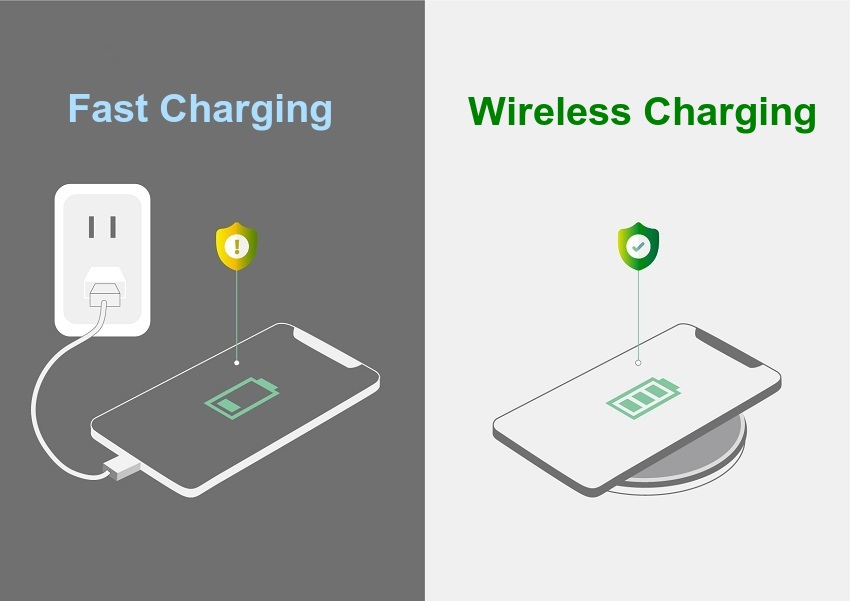Fast Charging vs. Wireless Charging – Fast wired and wireless chargers are a simple way to ease low battery anxiety, but there are still concerns: will they inadvertently shorten the life of your battery? Let’s review the important elements and decide which charging technique is best.
Fast Charging vs. Wireless Charging
To put it simply, wireless charging is much simpler than traditional wired charging because it allows you to place your handset device onto the charging dock and charge it without requiring you to plug anything into your phone.
1. When compared to wired charging, you don’t have to tinker with cables.
Imagine being able to charge your phone without having to plug in and unplug a cable each time. Your phone will begin charging automatically when you place it on the charging pad. Everything appears tasteful and organized, so you won’t have to stress over losing your charger or cable.
2. Finally, wireless charging is stylish.
All it takes to create an untidy table is a few cables. Not to mention the possibility of stumbling over wires.
3. Portability & Convenience
Using a wired charger ties your phone and you to one location. Your device’s mobility is restricted while it is charging, and you must take care not to tangle or stretch the cable. Throughout your phone’s lifetime, you will need to purchase multiple cords due to wear and tear from the constant attaching and disconnecting.
4. Security & Dependability
In general, both wired and wireless charging techniques are dependable and safe. Constant use wears down wired chargers, which can lead to exposed wires or unsafe connections. Another tripping hazard in your home is the disarray of cables.
5. Overheat When Charging Wirelessly: Which Could Drain Your Battery?
Those who have begun charging their phones wirelessly have been debating whether or not “wireless charger heat harms your battery” regularly. When compared to traditional cable charging, wireless charging typically produces some waste heat and may even cause the phone battery to overheat, according to How-To-Geek.
Every time your phone’s battery is exposed to high temperatures, some of that wasted power converts to heat. This additional heat will accelerate the aging process of your battery.
FAQ
Q1. Is wireless charging your phone the better option?
The truth is that wireless chargers aren’t quite hassle-free just yet, despite being more compatible and practical. Even though plugging devices in with cords can be inconvenient, this charging method is still faster and more portable.
Q2. Which kind of charging works better, wireless or wired?
The Advantages of Wired Chargers: When comparing wireless and wired chargers, there is a difference in charging speed. Since wired chargers can charge your phone significantly faster than wireless ones, comparing wired and wireless chargers is more challenging.
Q3. Are batteries harmed by wireless charging?
Consequently, a battery will only use up half of a battery cycle when charging it from 50% to 100%. Wireless charging won’t damage a device’s battery since battery charge cycles are determined by how frequently they are charged rather than the technique.
Q4. Are wireless charging devices health-safe?
In actuality, how safe are wireless chargers? Being near a wireless charger is completely safe, so you can keep charging your phone while working all day at your desk or on your nightstand.
Q5. Can I use a 65W charger to charge a 33W phone?
Yes. The phone and charger work out the highest voltage that the charger can provide and the phone can withstand, after which the phone takes the voltage and uses the appropriate amount of current.

